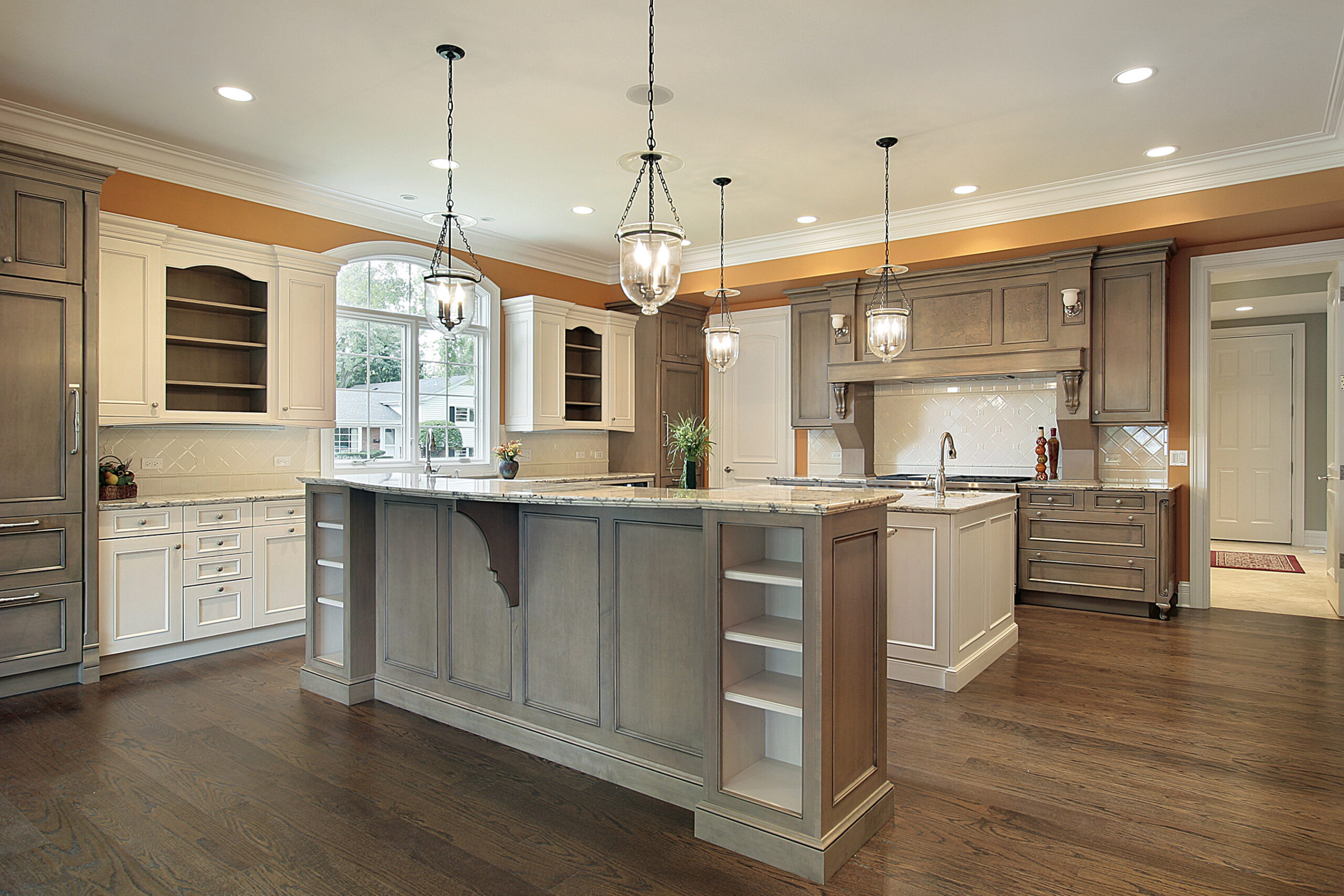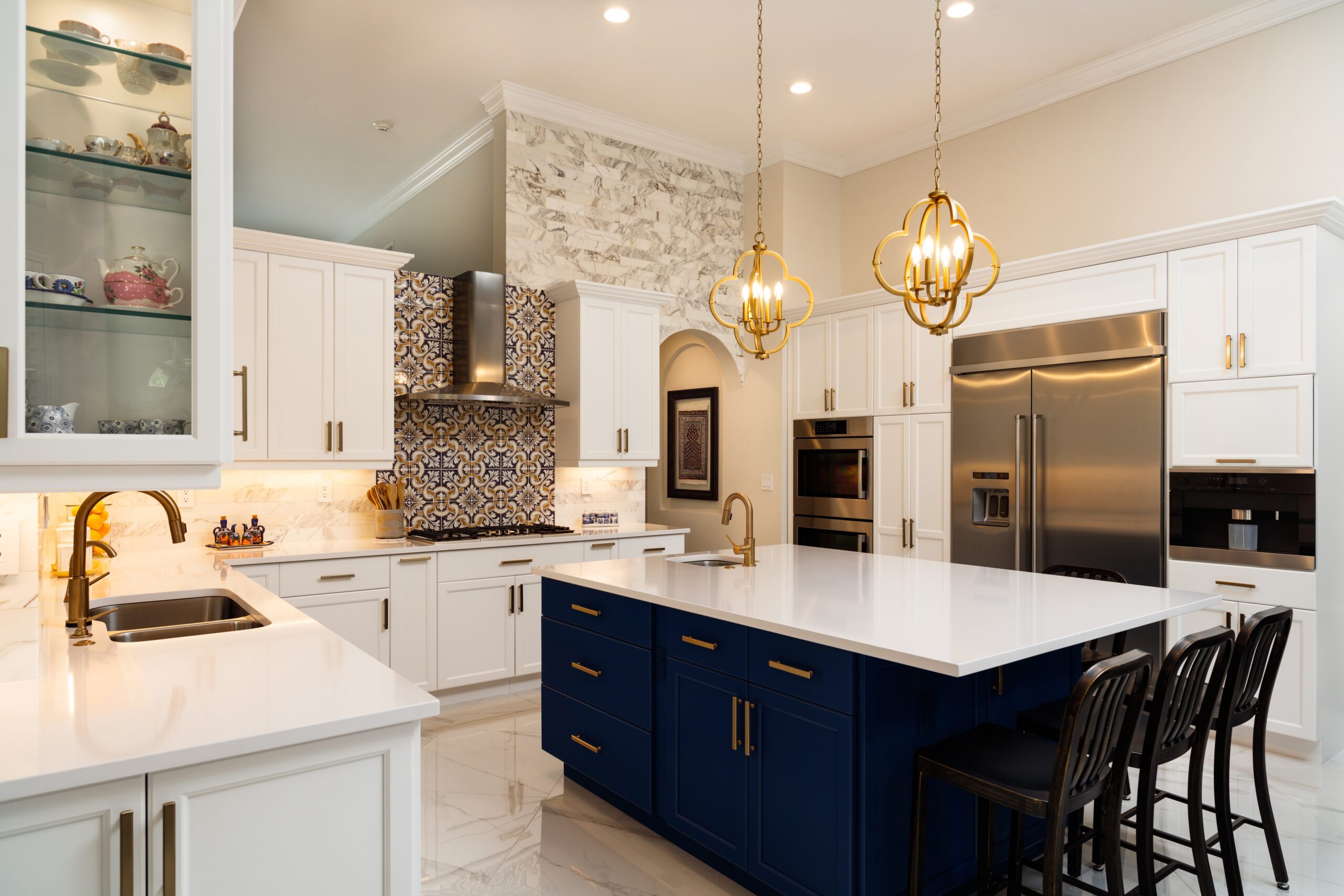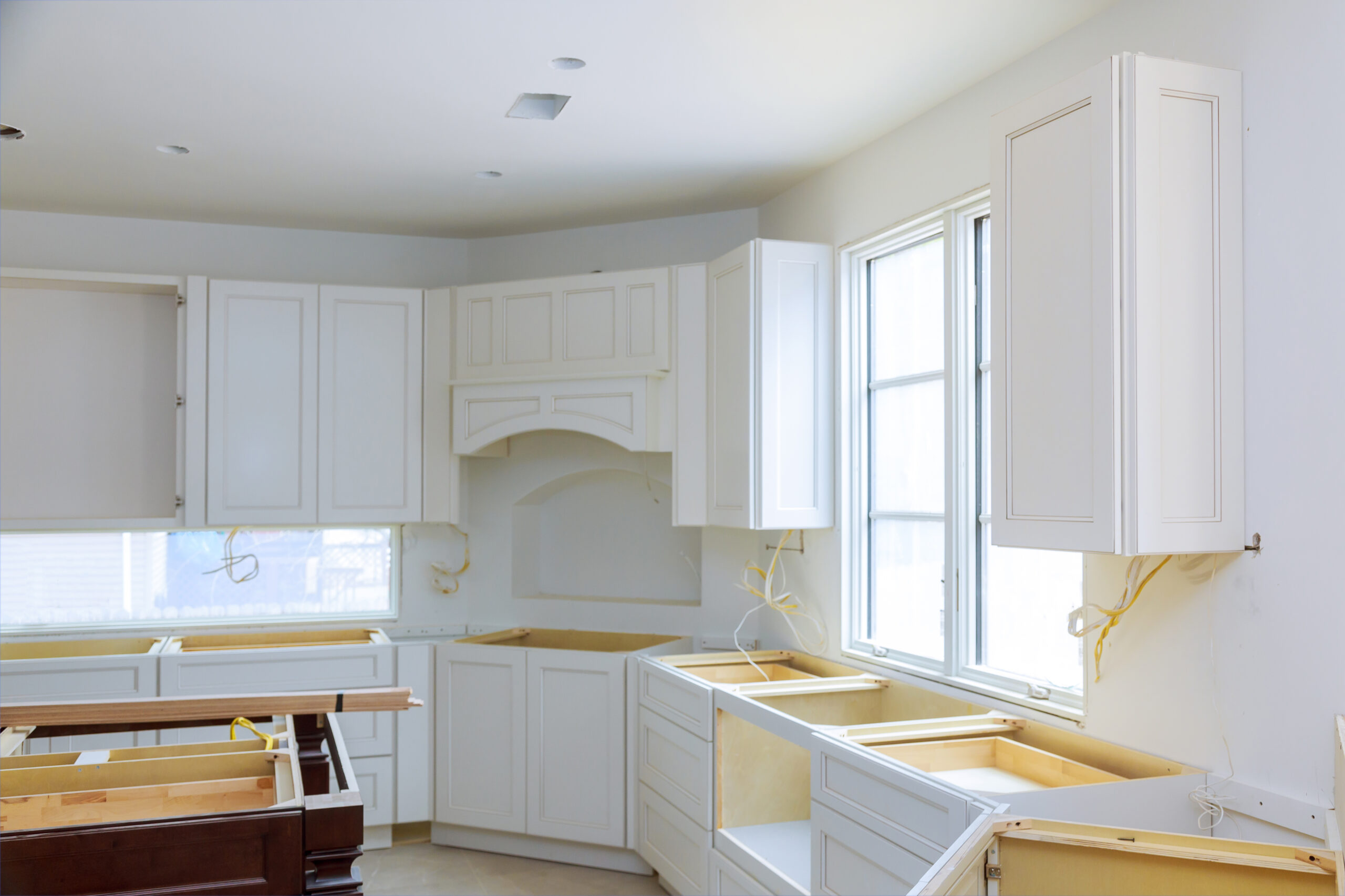Porous vs. Non-Porous Countertops: What’s the Difference?
Selecting the ideal countertop for your kitchen or bathroom can feel overwhelming, especially with the plethora of options available. Understanding the distinction between porous and non-porous countertops is crucial because it affects a countertop’s ability to stain. So, let’s dive into the nitty-gritty of countertop options, highlighting their differences and helping you make an informed decision.
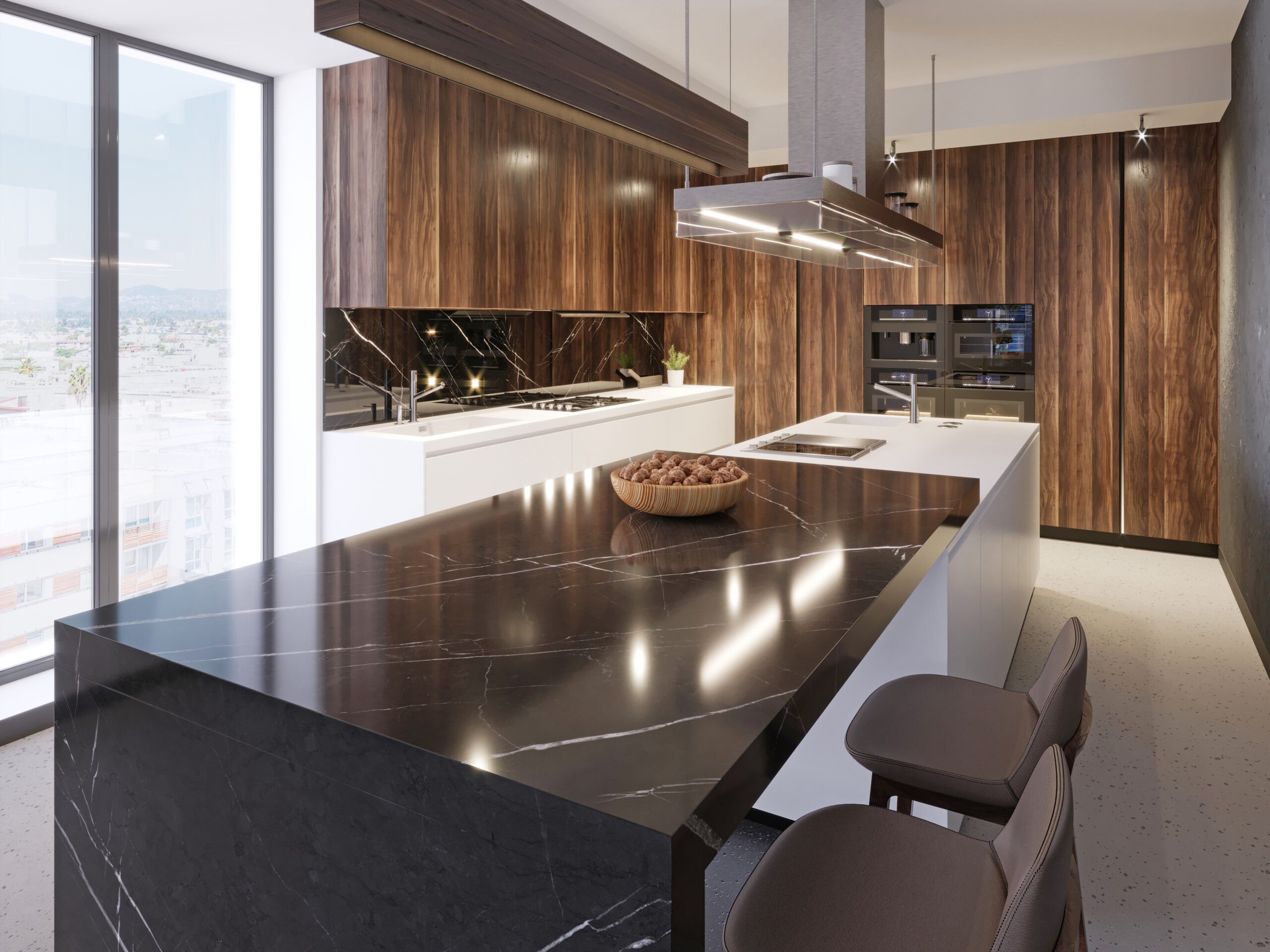
Understanding Porosity
Natural stones, like granite and marble, are often the culprits behind the term “porous.” Just like a concrete sidewalk that absorbs water after a rainfall, porous surfaces have tiny, sometimes microscopic, spaces that allow air water to pass through. These spaces can make the countertop vulnerable to staining if not cleaned and sealed properly.
Popular Porous Countertop Materials
Many homeowners are drawn to the beauty and elegance of natural stones like granite marble, or quartzite for their kitchen countertops. However, these are porous surfaces. With time, if not well-maintained, they can absorb liquids which might lead to discoloration or staining.
Popular Non-Porous Countertop Materials
Materials like quartz, laminates, and certain resins are naturally non-porous because they are man-made countertop surfaces. These solid surfaces provide a virtually maintenance-free countertop option. They’re stain-resistant and don’t require sealing like their porous counterparts. However, it’s important to note that stain-resistant doesn’t mean stain-proof. If certain liquids or powders remain on these popular non-porous materials for too long staining can still happen.
Benefits of Non-Porous Countertops
The biggest advantage of non-porous countertop surfaces is their resistance to staining. Spilled wine or coffee? No problem. Wipe it off, and you’re good to go. This stain-resistant nature makes them a favorite among many homeowners, particularly in busy kitchens. That said, if liquids or powders sit for too long, there is the possibility that a non-porous countertop could stain.
Maintenance Matters
Every countertop material, whether porous or non-porous, requires some level of care. Porous surfaces like granite might need regular sealing to prevent moisture absorption. On the other hand, solid surfaces just need regular cleaning with a mild detergent to keep them looking pristine.
Cost Implications
The cost of countertops is actually driven by material and look, not the porosity. Thus, laminate countertops will be the cheapest option available to homeowners whereas marble and quartzite will be on the more expensive side.
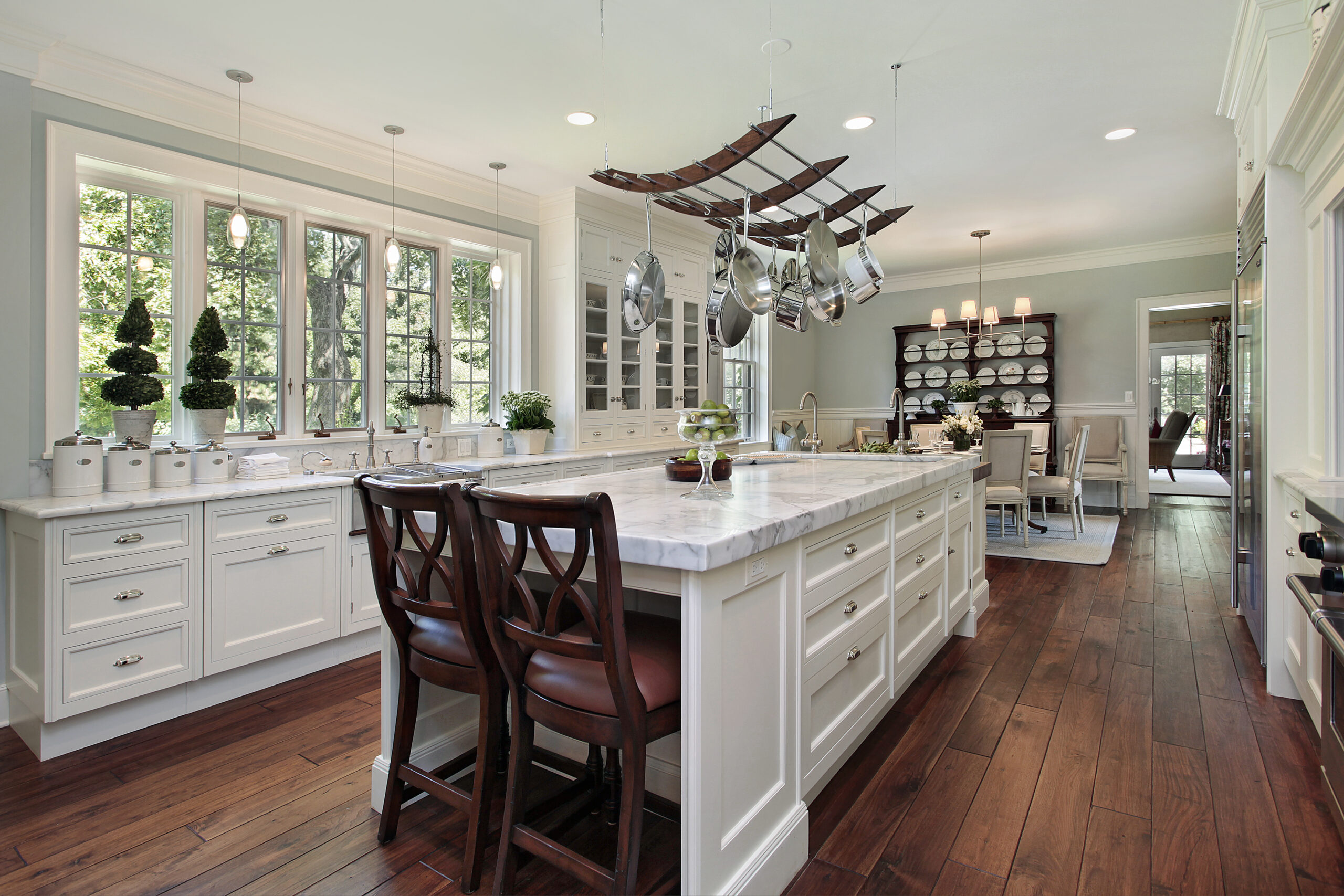
Call Alps Craftsman Today!
Choosing the right countertop material for your home is a blend of aesthetic appeal, functionality, and budget. Whether you gravitate towards the natural elegance of porous surfaces like granite and quartzite, or the resilient nature of naturally non-porous solid surfaces, it’s essential to weigh the pros and cons.
At Alps Craftsman, we’re here to help guide you through these decisions. Our range of countertop services is designed to cater to all tastes and requirements. Ready to give your kitchen or bathroom a facelift? Explore our range of countertop surfaces, and let’s bring your vision to life!
